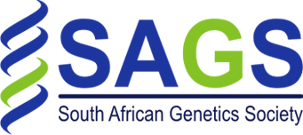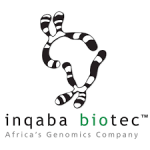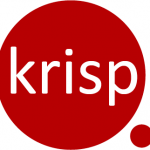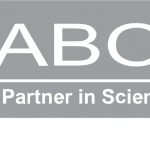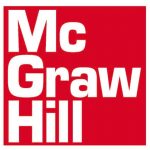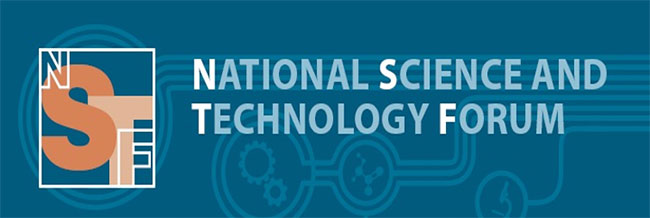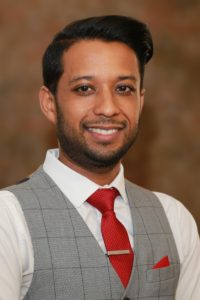
Dr Clint Rhode
M.Sc., Ph.D. (Genet.), M.S.A.G.S. (Ord.), Pr.Sci.Nat. (Biol. Sci.)
Stellenbosch University
President of the South African Genetics Society
I am a classically educated, population geneticist, with a specific research interest in how animal populations evolve over time.
Although fundamental in nature, my research programme does touch on applied concepts in animal production, conservation and sustainable agriculture. Currently, my research group is resident in the Department of Genetics at Stellenbosch University, where my postgraduate students work on projects involving aspects of population- and functional genomics of aquaculture species (including abalone, dusky kob, sea urchin and yellow tail) and the black soldier fly as an emergent organism of interest in bioremediation and renewable agricultural practices.
We particularly investigate how captive and mass rearing of these animals, impact genomic diversity and consequently phenotypic expression of fitness and production traits. Our work has implications for the genetic management of commercial and natural populations. As an academic, I strive to maintain a balanced professional portfolio with elements of research, teaching and learning, and civil service. As such, I teach both introductory and advanced courses in genetics and serve as the departmental executive responsible for the Learning and Teaching portfolio; and consult to industry and government on a regular basis.
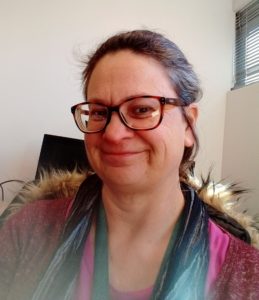
Dr Marieka Gryzenhout
M.Sc., Ph.D.
Vice President of the South African Genetics Society
Trained as a biosystematist I am interested in fungal taxonomy, biodiversity and conservation. My research group is involved in applied projects where fungi can be used for industrial or medicinal uses, or causes problems as human or plant pathogens.
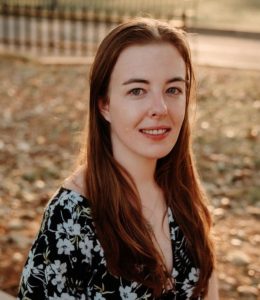
Mrs. Shannon Wilson
B.Sc (Biotech.), M.Sc. (Genet.)
Stellenbosch University
Secretary of The South African Genetics Society
Witih my training in Biotechnology and Genetics from the University of Pretoria, I am working as a research assistant at the Division of Medical Virology at Stellenbosch University in conjunction with the Desmond Tutu TB foundation.
I am actively involved in the genomic surveillance of SARs-Cov-2 virus in parts of the Western Cape as part of the NGS-SA network since June 2021. In addition, I also assist in the laboratory and data aspects of several clinical research projects involving paediatric infectious diseases.
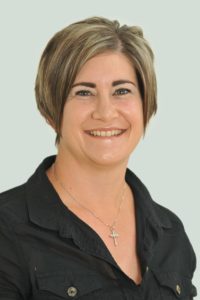
Dr. Rencia van der Sluis
M.Sc. (Genet.), Ph.D. (Biochem.)
North-West University
Treasurer Of the South African Genetics Society
I started my career as a Senior Laboratory Technician in the Focus Area for Human Metabolomics (FAHM) at the North-West University (NWU) in 2007. After working fulltime for three years, I enrolled for a PhD in Biochemistry in 2011 and successfully completed my PhD in July 2015.
I am currently an Associate Professor in FAHM and a principal investigator in the Molecular Genetics group. The main focus of our group is to elucidate the role of the phase II glycine conjugation pathway in mitochondrial energy metabolism. Currently, we are investigating whether glycine conjugation is indeed responsible for alleviating symptoms in isovaleric acidemia (IVA) patients. IVA is a rare defect of leucine catabolism caused by mutations in the isovaleryl-CoA dehydrogenase (IVD) gene. This results in the accumulation of isovaleryl-CoA and isovaleric acid, which is toxic to mitochondria.
Additional Members
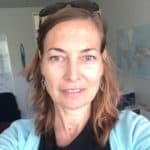
Dr. Aletta Bester van der Merwe
University of Stellenbosch
Dr Bester-van der Merwe is a Senior Lecturer and Group Leader of the Shark and Ray Genetics Research Group at Stellenbosch University. Her disciplinary expertise includes molecular population- and evolutionary genetics with the aim to incorporate such data into the management and conservation of commercially important species.
Dr Bester-van der Merwe’s work finds further applications in wildlife forensics and law enforcement, and as such she regularly serves as expert witness in poaching and illicit hunting/fishing court cases. She has a wide network of partnerships with governmental organizations, NGOs and academics, and rated as an established researcher by the National Research Foundation.
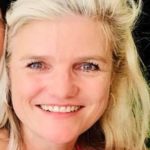
Dr. Jean Mollet
University of witwatersrand
I am currently a Senior Lecturer in the School of Molecular and Cell Biology at Wits University. I obtained my BSc (1986); Hons BSc (1987) and MSc (1989) at Stellenbosch University; and my PhD, at Wits University (2013).
I have been at Wits since 1995. I am involved in and passionate about teaching undergraduate and postgraduate courses in various Genetics topics. I have supervised Honours (20), Masters (5) and PhD (1) research projects involving plant genetic engineering and microsatellite DNA markers for genetic mapping.
My lab focusses on building capacity in the field of research
involving genetic divergence and hybridization in bird and plant species to inform conservation in southern Africa. Our long term goal is to set up methodologies and techniques to strengthen research and research capacity into the genetics of speciation and into the role of anthropogenic driven changes to the environment, such as climate and land-use change, which can alter bird, plant and insect distributions, their breeding success and survival which has
implications in an ecological context.
As my other research interests have been around teaching and learning innovations, I have also done research into investigating worldview differences concerning biotechnology, and how they contribute to
epistemological barriers in teaching and learning in two SADC institutions, i.e. Wits University and the University of Namibia.
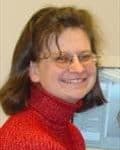
Dr. Marieka Gryzenhout van der Merwe
University of Free State
Since my post-graduate studies at the University of Pretoria, I have been passionate about studying fungi (mycology). During my PhD I developed a world monograph of the important tree pathogen fungal family Cryphonectriaceae. The book publication was preceded by 25 internationally reviewed publications, which was also done as collaborations with fellow students or other scientists.
My research instilled in me a hunger to discover fungal species, describe them and untangle taxonomic problems. Moreover, I have a practical approach and making my knowledge available to diverse end-users who do not necessarily have the appropriate skills and background, is gratifying. Skills in classical taxonomy, especially when paired with molecular approaches, are scarce in any biological field. My current position as biosystematist in the Department of Genetics at the University of the Free State, is thus conducive to follow my research ideals fully.
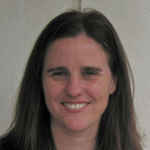
Mrs Robyn Jacob
sasri
Robyn Jacob is a Molecular Biologist with a keen interest in Bioinformatics, conducting her research at the South African Sugarcane Research Institute (SASRI), Kwa-Zulu Natal.
Her research targets both the Variety Improvement Programme and the Crop Protection Programme. Current projects include uncovering defense mechanisms in both the incompatible and compatible interactions between sugarcane cultivars and the largest pest in the sugarcane industry, the stem borer, Eldana saccharina. Other research interests include the identification and isolation of tissue-specific promoters and involvement in SASRI’s genetic modification programme.
Student Members

Mrs Alisa Postma Smit
SASBi representative, University of Pretoria
Alisa Postma is a Research Assistant and a PhD candidate at the Centre for Bioinformatics and Computational Biology and the Forestry and Agricultural Biotechnology Institute at the University of Pretoria.
She obtained a BSc and BSc(Hons) in Genetics at the University of Pretoria and an MSc in Genetics at Stellenbosch University. Her current research interests include genomics and transcriptomics analyses of forestry pests and pathogens.
She is actively involved in student training, having been a practical demonstrator and tutor for numerous subjects at University of Pretoria and Stellenbosch University as well as co-supervising several postgraduate students.
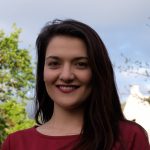
Ms Ncité Lima Da Camara
University of Stellenbosch
Ncité Da Camara is a Ph.D. candidate in Molecular Biology (Bioinformatics) in the Division of Molecular Biology and Human Genetics of the Department of Biomedical Sciences at the Faculty of Medicine and Health Science of Stellenbosch University.
She completed a BSc degree in Biodiversity and Ecology, as well as a BSc Honours degree and a Master’s degree in Molecular Biology (Bioinformatics) at Stellenbosch University. She is experienced in bioinformatics and wet bench laboratory work.
Ncité is a member of the South African Genetics Society executive student council and part of the South African Society for Bioinformatics Newsletter Editorial Team, as well as actively involved in many community outreach projects. She is passionate about learning as well as sharing knowledge.
Her current research aims are to develop, evaluate, and implement an analytical pipeline for the analysis of multiplex immunoassay data.
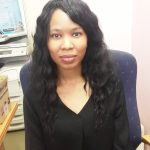
Ms Lerato Diseko
University of Free State
PhD in Human Molecular Genetics. My study is on HIV and how the host genetic make-up makes on susceptible or resistance to HIV.

Mr. Ernest Makua
Tshwane University of Technology (Resigned December 2019)
Kgoana Tebatso Ernest Makua completed his MSc in Animal Sciences at the Tshwane Institute of Technology, looking at genetic determinants of meat quality. He speaks English, Venda, Sepedi, Zulu, Afrikaans, Ndebele, Tswana, Swati and Xhosa.
